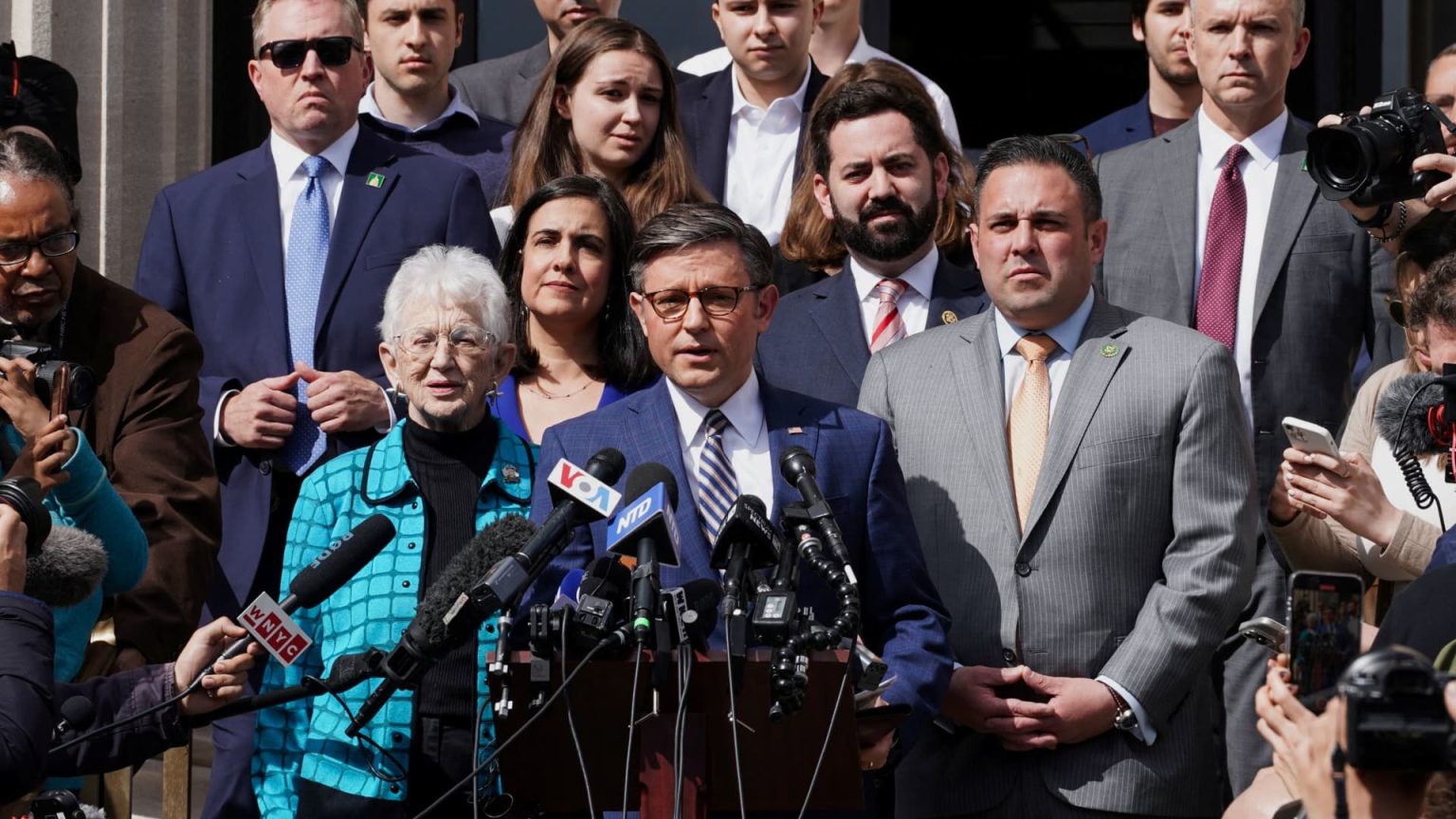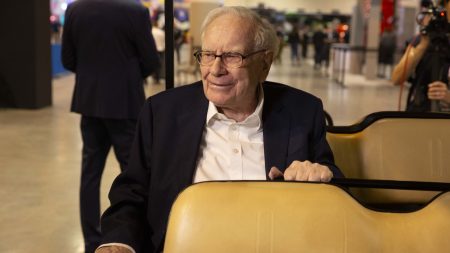House Speaker Mike Johnson, R-La., faced a hostile crowd at Columbia University where he condemned student protests against Israel’s actions in Gaza. The campus has been embroiled in controversy since student protesters set up a tent encampment on April 17 to protest the war in Gaza. Reports of antisemitic speech targeting Jewish students have attracted national attention, leading Columbia President Nemat “Minouche” Shafik to authorize the NYPD to sweep the encampment. Columbia Students for Justice in Palestine, one of the protest organizers, denied involvement in any hate speech, attributing it to outside individuals. Johnson called for Shafik’s resignation if she couldn’t control the protests and threatened to involve the National Guard if necessary.
President Joe Biden has condemned both antisemitism and those who lack understanding of the Palestinian situation. Johnson’s speech came after Biden signed a much-awaited foreign aid bill for Israel, Ukraine, and Taiwan into law. Johnson faced opposition from his own party, including threats of ouster from hardline members like Rep. Marjorie Taylor Greene, but he pushed for the bill’s passage in the House, which was subsequently approved by the Senate. The speaker’s speech at Columbia was perceived as an attempt to bolster his conservative credentials, particularly in the eyes of his GOP colleagues. Joining him were Rep. Virginia Foxx, R-N.C., and Rep. Mike Lawler, R-N.Y., with Johnson urging protesters to return to class and not waste their parents’ money.
The situation at Columbia University has stirred significant tensions, with student protests against Israel’s actions in Gaza drawing strong reactions from various quarters. Johnson’s condemnation of the protests and call for action against hate speech reflected a broader political landscape where even foreign aid bills could become subject to partisan wrangling. The speaker’s efforts to navigate these challenges, balance internal party dynamics, and maintain a strong conservative stance have been evident in his actions regarding the aid bill and his subsequent speech at Columbia. Johnson’s alignment with hardline members of his party while maintaining some bipartisan cooperation on foreign aid underscores the complex nature of political maneuvering in the current climate.
The intersection of campus activism, foreign policy, and internal party dynamics highlighted in the Columbia University protests and subsequent developments has underscored the challenges facing political leaders like Johnson. Trying to address issues of antisemitism, protests, foreign aid, and party unity all within a short time frame demonstrates the pressures and complexities of modern governance. Johnson’s speech at Columbia, where he faced a hostile audience and made strong statements about the protests and antisemitism, served as a moment to assert his position and assert conservative principles while also navigating intra-party dynamics and broader political currents.
The push and pull of political forces around the Columbia University protests and foreign aid bill illuminate the complexities of modern politics, where issues ranging from campus activism to international relations can become intertwined. Johnson’s efforts to assert his position, balance party dynamics, and address pressing issues highlight the multifaceted nature of leadership in a polarized political environment. By engaging with student protests, speaking out against hate speech, and advocating for foreign aid, Johnson has positioned himself within a broader political landscape marked by competing interests and ideologies. The interactions between campus activism, party politics, and international affairs at Columbia University provide a microcosm of the challenges facing leaders like Johnson in navigating complex issues and maintaining political credibility.
In conclusion, House Speaker Mike Johnson’s speech at Columbia University, condemning student protests against Israel’s actions in Gaza, highlights the challenges of political leadership in a polarized environment. Facing a hostile crowd, navigating internal party dynamics, and pushing for foreign aid legislation, Johnson’s actions underscore the complex terrain of modern governance. The intersection of campus activism, foreign policy, and partisan politics at Columbia University serves as a microcosm of broader challenges facing political leaders in addressing pressing issues, managing party dynamics, and asserting ideological positions. Johnson’s engagement with these issues reflects the intricate dance of political leadership in a fast-paced and ever-changing landscape.















